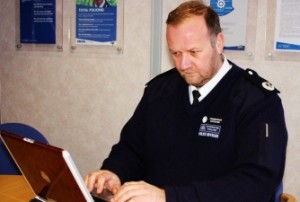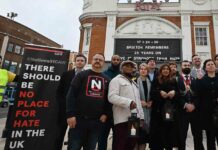
By Tim Dickens, Editor
The Metropolitan Police’s stop and search chief came to Stockwell last night to unveil a “fundamental and radical” review of the tactic, six months after the riots and disorder that enflamed Brixton.
Commander Tony Eastaugh addressed the Lambeth Community Police Consultative Group, at Stockwell Resource Centre, Studley Road. He said planned Section 60 orders would be halved, and will only be approved by the most senior police officers in the force.
Section 60 allows police to search anybody in a given area without suspecting them of an offence. It was introduced in 2001 in relation to soccer violence but rejuvenated by the Met in 2009 after 17 young people lost their lives to violence in the capital in just 12 weeks.
Eastaugh, who volunteered for the stop and search lead as it was “close to my heart” said: “Section 60 will still be used but the threshold will be raised to the highest possible level.
“We treat stop and search with the utmost respect. We want to treat it with even more respect.”
According to the commander, constables will be trained over the “quality” of the encounter when a stop and search takes place and those being searched will be told exactly why they have been stopped. Radios could also be used to “geo-tag” the incident for later review by senior officers.
“If [young people] can be reassured that the police our on their side then the engagement becomes stronger.”
He said the Gang Command unit and Tactical Support Group (TSG) would make sure areas with less stop and searched stay safe.
CPCG member Wes Stephenson asked the commander if police drafted into Lambeth from outside London for the Olympics would be sensitive to the culture of the borough, and understand specific challenges like mental health. Eastaugh said it is “absolutely critical” Met Police standards are upheld in the capital.
“It looks like they (the police) are listening. They have a black officer at the table this evening and they are listening to us.
“I don’t have a problem with stop and search if it’s done properly . The majority of violence is black on black and stop and search can help eliminate some of it.”
But, Lloyd added, the tactic still criminalises some young men because if they are unhappy at being stopped they are often arrested for disorderly conduct.
Last Wednesday Eastaugh took part in an online chat about stop and search which can be seen here.




Hello my friend! I want to say that this post is amazing, nice written and come
with almost all important infos. I would like to peer more
posts like this .
Feel free to surf to my wenpage :: spanish funny commercials
[…] The Brixton Blog says stop and search is to get ‘a radical review’. […]